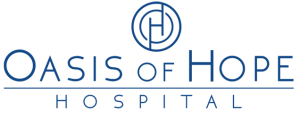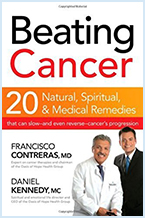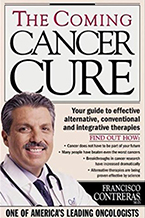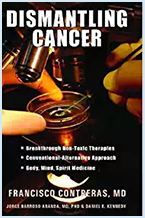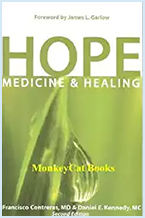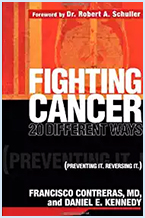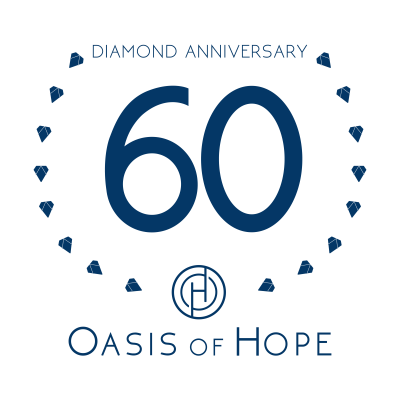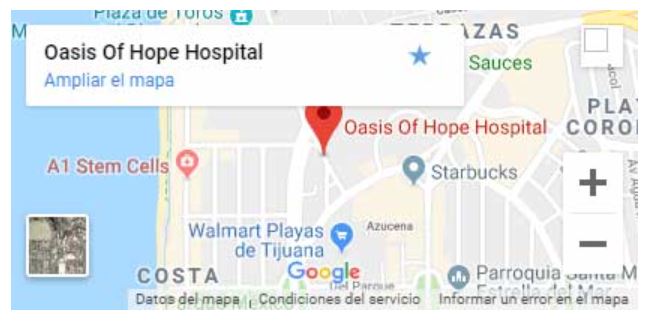Nutritional Cancer Therapy
at Oasis of Hope
The Place for Alternative Cancer Treatment
On the one hand, food can help bring about healing in the body; on the other, food can fuel cancer. I believe you already know intuitively which foods heal and which foods harm.
Allow us to share why and how nutrition is a vital part of recovery.
Insulin
Many people would assume that discussing insulin level in the bloodstream is only relevant to a diabetic, but that’s not true at all. The presence of two hormones—insulin and insulin-like growth factor-1 (IGF-1)— directly correlates to the incidence of some cancers. Controlling their levels is one of the most important aspects in an anticancer regimen. In fact, they have such a significant impact in this regard that every oncologist should have a diet designed to control their production integrated into every treatment program.
Researchers have conducted significant studies that help us know what foods to avoid. For example, the China Study, conducted by Cornell University, started in 1983 and spanned a period of twenty years in rural China. Participants ate a primarily plant-based diet.
The study singled out the foods absolutely linked to an increased risk for cancer. It showed that risk for most cancers correlated with the proportion of dietary calories provided by animal products. What, exactly, are animal proteins, animal fats, and processed foods, along with processed sugars and white flour, doing that increases risk for cancer? A diet based largely on these “Western” staples boosts our production of insulin and “free” insulin-like growth factor-1 (IGF-1).
We’ve carefully examined the science that links levels of these hormones in the bloodstream to the rapid multiplication of mutated cells. The connection is clear: these hormones block the process of cell apoptosis, the program within a cell that indicates when it’s time to die and make way for a new healthy cell to take its place. It is also the process by which mutated cells, or cancers, are eliminated.
Apoptosis is the natural process God designed to help the body protect itself from cancer. Insulin and IGF-1 block apoptosis in cancerous cells, which, needless to say, allows cancer to gain a foothold within the body. So, how can diet increase or decrease the body’s production of these two hormones? Studies have determined that dietary factors in the US and other westernized nations are primarily responsible for the high levels of these hormones.
Studies have determined that dietary factors in the US and other westernized nations are primarily responsible for the high levels of these hormones. We tend to consume diets high in saturated fats; we tend to carry extra weight around the abdominal area because we eat larger meals than those in more deprived countries; and we engage in a more sedentary lifestyle. All these factors increase insulin production, which stimulates the production of free IGF-1.
Let’s revisit the China Study.
People in rural China eat a quasi-vegan diet—almost purely vegetarian, coupled with extremely limited meat and dairy products. This diet type causes the liver to decrease production of IGF-1 and increase the production of a protein that blocks production of free IGF-1. So, what impact do these facts have on the treatment of cancer? Let’s piece it together.
Foods that increase insulin and free IGF-1 levels in the bloodstream will ultimately stimulate cancer’s progress. These two hormones are even involved in the defense mechanism cancer uses to protect itself against chemotherapy.6 Conversely, a diet that keeps levels of these hormones low will ultimately inhibit cancer’s progression. It really is that simple.
What to Eat
It’s critical for anyone managing chronic illness to view dietary changes in a positive light. Giving up “comfort foods” is a small price to pay to halt the growth and spread of cancer.
Ideally, it’s desirable for patients to adopt a vegan or wholly plant based diet, with one exception: The omega-3 fatty acids in fish oil present numerous benefits, and fish oil capsules do not increase insulin levels.
A vegan diet is low-fat (only 15% of dietary calories should come from fats), is moderate in protein, and incorporates whole-food carbohydrate sources that are low on the glycemic index: semolina or wholegrain pastas, whole fruits, and whole-grain products like sprouted wheat breads (instead of wheat-flour breads). Further, because high-glycemic-index carbs can boost insulin levels, the diet should provide carbohydrates from sources that are low in glycemic index.
For instance, as even carrot juice has quite a bit of natural sugar, we recommend green vegetable juices.
While this diet is ideal, it’s difficult for some people to follow, often representing a drastic change. Patients who need a gradual change can derive modest benefit by adopting a “Mediterranean” diet, which discourages red meat and fatty dairy products, allows moderate amounts of lean white meat or fish, and encourages large amounts of fruits, vegetables, beans, and whole grains.
While not as effective as a vegan diet, this is a vast improvement over the diets favored by most Americans.
A host of foods offer a range of benefits to cancer patients. For instance, cruciferous vegetables like cabbage, broccoli, cauliflower, and kale are rich in sulforaphane, while onions and garlic contain allicin. Both compounds are proven to inhibit or slow the growth of cancer cells and cause the cells to produce higher levels of antioxidants as well as enzymes that detoxify the body.
These foods also can increase the ability of healthy tissues to cope with chemotherapeutic drugs and radiotherapy. In addition, they may present post-treatment benefits by helping to block the development of additional cancers.
Another food with powerful anti-cancer properties, a must for any anticancer diet, is spirulina, a supplement produced primarily from two species of blue-green algae.
Spirulina contains a phytonutrient that blocks a signal pathway that makes cancer cells more aggressive and that protects them from programmed cell death. In addition, spirulina contains polysaccharides that boost the ability of the immune system’s natural killer (NK) cells to block metastasis.
Eliminating Toxics
Do you know the category of the best-selling, most self-prescribed health product in America? Not weight-loss products. Laxatives.
Each year, Americans spend more than $700 million on laxatives. A recent study showed that the United States has the highest rate of laxative use compared to several other countries.
To put it plainly, Americans are constipated. Many people believe it’s normal to move their bowels every two to three days; people need to move their bowels two to three times each day. This is especially important for cancer patients, and, unfortunately, many cancer therapies are constipating. A constipated person is not eliminating toxins. In fact, toxins, including chemotherapy, are recycled, thus exposing patients to devastating side effects again and again.
A high-fiber diet is critical to detoxing the body. Many phytonutrients found in vegetables, herbs, and fruits influence detoxification pathways, improve the liver’s function, and help the bowels move. Sulforaphane, present in broccoli sprouts, specifically stimulates liver detoxification.
